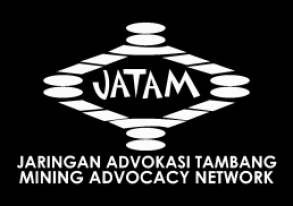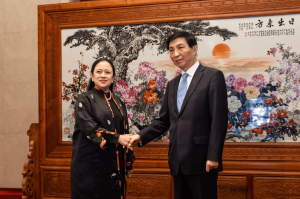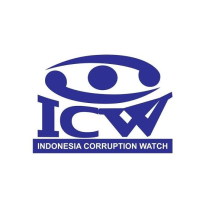Indonesia's corruption perception index improves, but concerns over political corruption persist says ICW
Transparency International Indonesia (TII) released Indonesia's 2024 Corruption Perception Index (CPI) on Tuesday, February 11, 2025. Indonesia's CPI was recorded to have increased by three points to 37 after stagnating for two years at 34.
The source of the 2024 CPI comes from the Global Insight Country Risk Ratings, in 2024 it fell 15 points compared to 2023. This indicator is related to the risk of bribery in imports/exports, obtaining public contracts and carrying out other business activities.
Another indicator related to the 2024 CPI is the Varieties of Democracy Project, an indicator of political corruption involving the executive, legislative and judiciary reflected in natural resource corruption in Indonesia.
The increase in the CPI score was due to the addition of the World Economic Forum (WEF) factor. TII explained that the WEF is an indicator that measures how reasonable it is for companies to make additional payments or unrecorded bribes.
Through this increase in the index, Indonesia's ranking was boosted to 99th out of 180 countries. Although it increased, Indonesia's score fell compared to the highest score ever achieved, which was 40 in 2019.
Agus Sunaryanto, Researcher of Indonesia Corruption Watch (ICW) said that the increase in the 2024 CPI score still leaves many notes and is not strong enough to conclude that Indonesia's anti-corruption conditions are improving. Especially when facing the post-political year period and various new government policies that have a fairly high vulnerability to corruption.
"Indonesia experienced a decline in scores on three sources of CPI data, namely related to the use of public resources for personal gain, political corruption involving three groups of power, and bribery in business activities such as exports, imports, and obtaining public contracts," Sunaryanto, as reported by Katadata.co.id, Saturday, February 15, 2025.
According to Sunaryanto, although the WEF 2024 score has increased significantly compared to the previous score, the presence of this indicator needs to be noted as a new indicator that is present because Indonesia responded to the survey, the quality of the data of which is also still worrying after a two-year hiatus.
ICW's study on the extractive and renewable energy businesses behind the Prabowo-Gibran government demonstrates that companies operating in the extractive sector have strong relations with rulers or elected officials to secure their businesses.
"Local governments and the executive provide extractive permits, company owners are given the red carpet by the legislature, and the judiciary sides with companies if the public cries out in court about the environmental impacts they experience," said Sunaryanto.
ICW 2025 projection
ICW views the reality of corruption eradication as actually going the opposite way throughout 2024. This regressive view of corruption eradication is projected to continue in 2025 for three reasons.
First, there are no anti-corruption program initiatives or policies that have been systematically implemented by the government throughout 2024 and planned for 2025.
"Efforts to eradicate corruption seem to be selective in dealing with parties who are at the center of corruption cases and are important officials," said Sunaryanto.
Secondly, several cases of alleged corruption mentioned by ICW include alleged corruption of Bank Indonesia's CSR which is allegedly linked to the Governor of Bank Indonesia and a number of members of the People's Representative Council (DPR).
Then, the alleged corruption case of the construction of a railway line at the Ministry of Transportation (Kemenhub) where the funds are suspected to have been used to finance the candidacy of former President Joko 'Jokowi Widodo in the 2019 Election and the alleged corruption in the procurement of goods at the official residence of a member of the DPR which allegedly involved Indra Iskandar, Secretary General of the DPR.
Thirdly, ICW assessed that there was no desire from the government to accelerate the eradication of corruption by strengthening regulations, including the Asset Confiscation Bill and the Currency Restriction Bill.
"ICW views that the main reason behind the reluctance to strengthen anti-corruption laws is because this regulation will threaten the stability of corrupt public officials," concluded Sunaryanto.
Tag
Already have an account? Sign In
-
Start reading
Freemium
-
Monthly Subscription
30% OFF$26.03
$37.19/MonthCancel anytime
This offer is open to all new subscribers!
Subscribe now -
Yearly Subscription
33% OFF$228.13
$340.5/YearCancel anytime
This offer is open to all new subscribers!
Subscribe now






